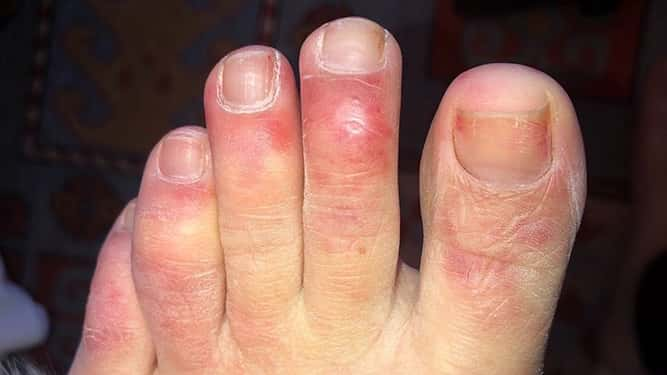The new study backs up other findings that sitting more during the COVID-19 pandemic is hampering well-being.iStock
For many of us, life changed dramatically when COVID-19 arrived. The way we work is one example for the droves of workers who became remote workers overnight.
A new study of nearly 15,000 Japanese workers, all of whom telecommuted during the pandemic and had no prior experience doing so, examined how this experience affected these workers.
Four in five of the workers didn’t notice any change in their job performance, according to a survey responses from the workers. But 15 percent of workers said their job performance got worse once they started working from home — and people were almost twice as likely to say this when they spent most of the day sitting.
The research was published August 4 in the Journal of Occupational Health.
The data is far from conclusive — one of the most glaring caveats being that participants self-reported perceived work performance and how much time they spent sitting over the course of their days on average. But it starts to reveal how the change to remote work may be affecting some people, says lead study author Kenta Wakaizumi, MD, PhD, a researcher in the department of anesthesiology at the Keio University School of Medicine in Tokyo.
It’s possible that some workers sat for hours on end because they were concentrating intensely and didn’t take breaks, explaining how sitting was associated with improved work performance for 4 percent of the survey participants, Dr. Wakaizumi says. It’s also possible that sitting for too much of the day made it harder for others to focus, which could explain why those who reported they spent more of their days sitting while working remotely also reported decreased work performance, Wakaizumi says.
Future studies will need to parse out why and for whom long periods of sitting may affect work, as this study wasn’t designed to answer those questions. But the data suggests those questions may be worth exploring, according to Wakaizumi and others. “The relationship between sedentary behavior and poor mental health is a global problem,” Wakaizumi adds.
RELATED: The Work-Life Balance Conversation We Need to Be HavingTop Articles



 READ MORE
READ MORE Former U.S. Air Force Officer With MS FindsPurpose as a Personal Trainer | Everyday Healthhttps://imasdk.googleapis.com/js/core/bridge3.486.2_en.html#goog_1844466478https://imasdk.googleapis.com/js/core/bridge3.486.2_en.html#goog_1621206183https://imasdk.googleapis.com/js/core/bridge3.486.2_en.html#goog_884803950
Former U.S. Air Force Officer With MS FindsPurpose as a Personal Trainer | Everyday Healthhttps://imasdk.googleapis.com/js/core/bridge3.486.2_en.html#goog_1844466478https://imasdk.googleapis.com/js/core/bridge3.486.2_en.html#goog_1621206183https://imasdk.googleapis.com/js/core/bridge3.486.2_en.html#goog_884803950
Other Research Has Linked Increased Sitting During COVID-19 to Worse Well-Being
Even though the new data is not conclusive, it’s not surprising either, says Bethany Barone Gibbs, PhD, an associate professor at the University of Pittsburgh in Pennsylvania, who studies the health effects of physical activity and sedentary behavior. “There is a wealth of evidence showing that physical activity is related to better mental health and mood, and accumulating evidence finds less prolonged sitting can probably improve mood too.”
Furthermore, a number of studies examining the impact of the pandemic on workers have found decreased job satisfaction, more sitting time, and more stress, she adds.
For example, one study, published in February 2021 in Occupational Medicine, followed up with 112 U.S. desk workers who had previously participated in a clinical trial designed to curb sedentary time and boost physical activity. During the pandemic, these desk workers reported that their sedentary time outside of the work day increased by almost one hour — and they also had more sleep challenges, symptoms of mood disorders, and a worse quality of life.
Another study, published in March 2021 in the International Journal of Environmental Research and Public Health, examined changes in lifestyle habits and mental health during the pandemic for 5,599 Swedish workers. Most workers reported no changes in sedentary time, daily physical activity, or exercise habits during the pandemic. But white collar workers were 67 percent more likely to report negative lifestyle changes, 75 percent more likely to spend more time sitting, and 16 percent more likely to get less exercise than blue collar workers.
Evidence from pandemic research to date suggests that sedentary behavior may have implications that go far beyond physical health, Dr. Barone-Gibbs says. Much of the data is still inconclusive, but hints that sedentary behavior may indeed be contributing to more stress, worsened moods and quality of life, and now job performance.
RELATED: Spend 2 Hours a Week in Nature to Boost Your Health and Well-Being
Workers Report Performance Suffers More the More They Sit
For the new study, researchers analyzed survey responses collected in August and September of 2020 from 14,648 Japanese workers who had no experience with remote work prior to the pandemic. Workers were asked to report perceived job performance and sitting time in the past 30 days compared with January 2020, before pandemic stay-at-home orders.
Workers were more apt to say their job performance suffered as the total time they spent sitting during the day increased. Compared with people who were sedentary for less than two hours a day, those with two to four hours of sitting time a day were 22 percent more likely to report a worse job performance. Workers who sat for at least eight hours a day were 78 percent more likely to report their job performance suffered.
The study does have some big limitations.
Again, data were self-reported. More objective measures of work performance (such as performance reviews) and sitting time (such as information from activity trackers or accelerometers) would have strengthened the conclusions.
Additionally, questions about job performance and sedentary time were asked at a single point in time, and it’s possible this doesn’t reflect workers’ experiences throughout the pandemic.
Results from Japan also might not be representative of what workers experienced in other countries, notes Matthew Ahmadi, a postdoctoral research fellow at the University of Sydney in Australia, who researches physical activity and sleep there and wasn’t involved in the study from Japan.
“This study may not be generalizable to American adults due to the presence of socio-cultural differences in how people perceive their work environment, role and performance,” Ahmadi says.
RELATED: How to Cope With Work-From-Home Burnout
There’s also no way to know from this data that the sedentary time among the workers necessarily caused the negative change on work performance, adds Lin Yang, PhD, a research scientist and epidemiologist for Alberta Health Services in Calgary, Canada, who studies energy balance in cancer patients and physical activity promotion (who wasn’t involved in the study either).
The data simply shows the two factors are correlated, she says. “We cannot be sure that the observed effect was from sedentary behavior per se — it could be a result of lowered physical activity overall during COVID.”
Changing Your Work-From-Home Habits
Taking breaks from sitting during the workday may help counter some of the negative effects extra of sedentary time while working from home, Barone-Gibbs says.
Here are some specific steps you can take to sit less during your work-from-home days:
- Aim to stand for 15 to 30 minutes of each hour, Barone-Gibbs suggests. “Try a sit-stand desk, or take phone calls standing up.”
- Take a quick movement break every hour, Barone-Gibbs advises. It doesn’t have to be intense — even walking for two or three minutes, or pausing work to empty the dishwasher may be enough to improve your circulation, reduce musculoskeletal discomfort from sitting too much, reduce stress, and improve mood.
- Set an alarm on your phone, fitness tracker, or computer to remind you to take these breaks, Barone-Gibbs says.
RELATED: Your Work-From-Home Survival Guide for Self-Care














